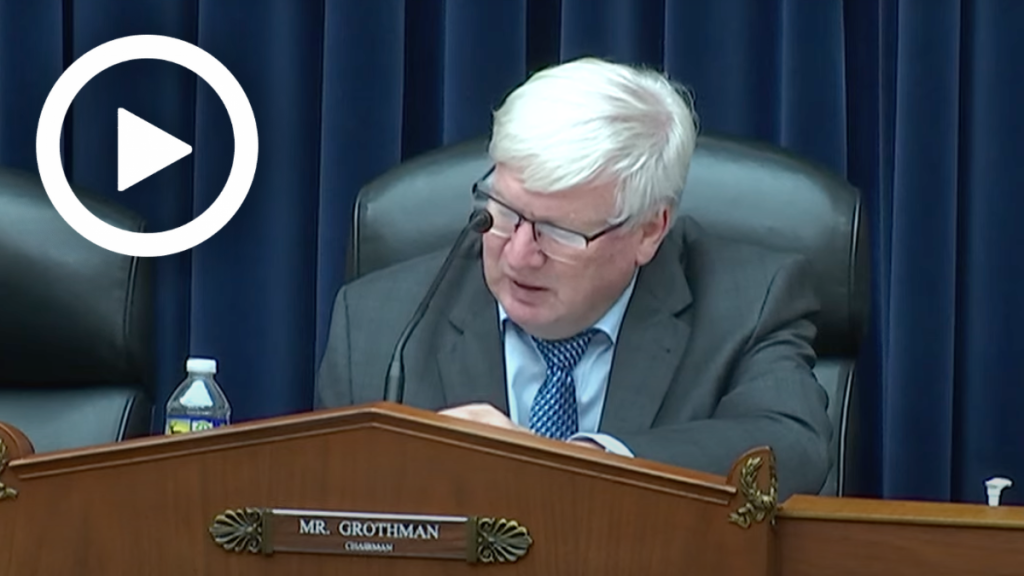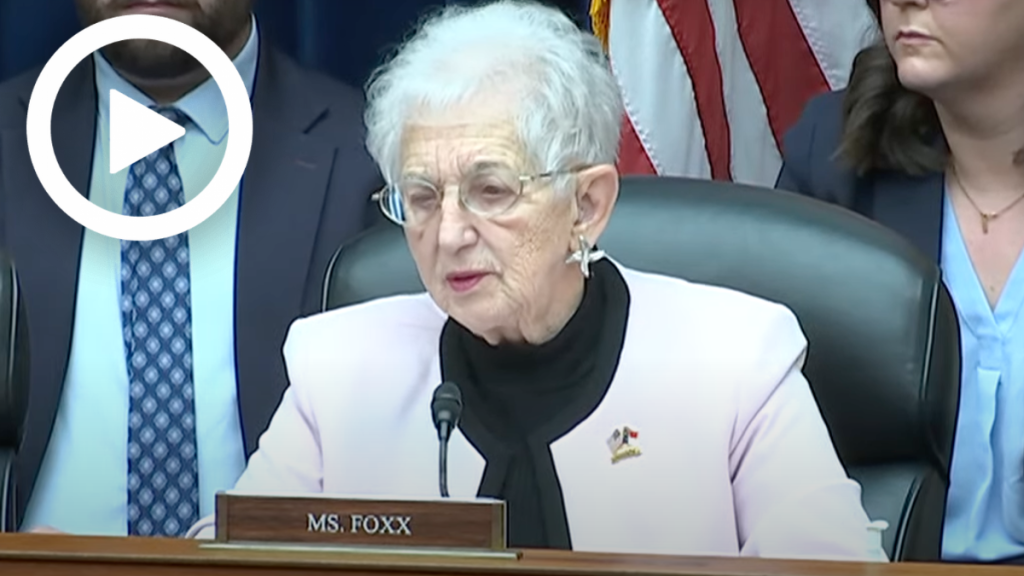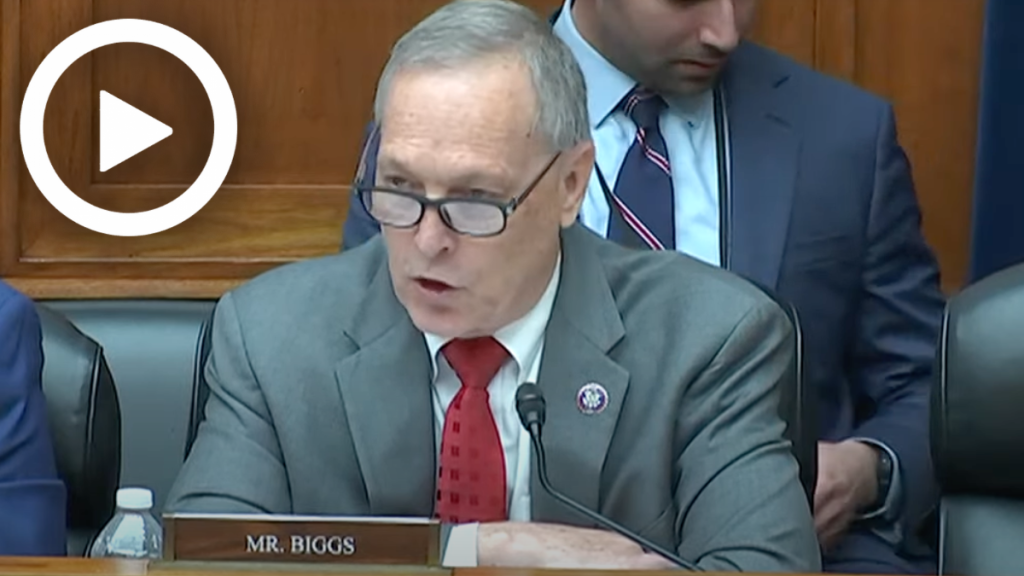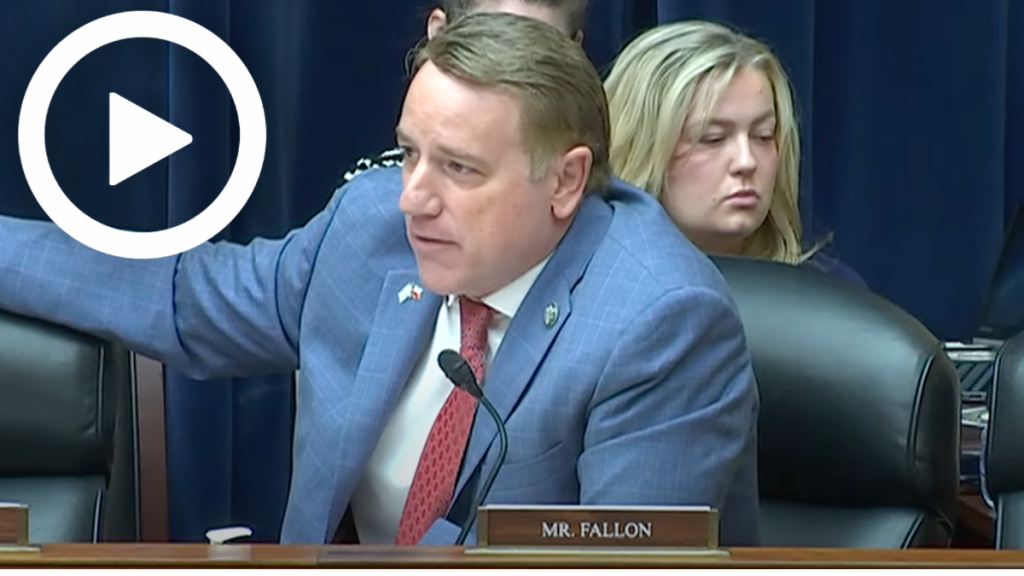Hearing Wrap Up: Biden Administration Must Increase Efforts to Protect Religious Freedoms Globally
WASHINGTON—The Subcommittee on National Security, the Border, and Foreign Affairs held a hearing titled, “Faith Under Fire: An Examination of Global Religious Persecution.” Subcommittee members discussed with subject matter experts how the Biden Administration has been largely silent regarding religious persecution globally. Subcommittee members also discussed how the numerous foreign policy blunders of the Biden Administration have emboldened hostile groups around the globe, enabling them to increase their attacks and persecution of religious and ethnic minorities.
Key Takeaways:
The Biden Administration has been reticent and distant while religious persecution of vulnerable groups around the globe by extremist groups and hostile regimes ramps up.
- David Curry—President and CEO of Global Christian Relief—highlighted how Christian groups around the globe are under increased threat of attacks: “Contrary to popular belief, religious persecution is not a thing of the past. It is a major and growing challenge around the globe, with billions of people living in nearly 80 countries that maintain high levels of government restrictions or social hostility towards people of faith. Faith really is under fire. For Christians specifically, the numbers are staggering. Approximately 360 million Christians globally experience high levels of persecution and discrimination for their beliefs.”
Due to the litany of foreign policy gaffs by the Biden Administration, from the botched withdrawal from Afghanistan to the Iranian hostage swap, hostile foreign groups have been emboldened to clamp down on religious and ethnic minority communities.
- Dr. Eric Patterson—President of the Religious Freedom Institute—pointed out the Biden Administration’s shortcomings in protecting religious freedoms: “The Administration’s priorities and lack of consistent commitment to advancing religious freedom negatively affect the State Department’s Office of International Religious Freedom. Recently, the Office seems preoccupied with engaging non-religious actors rather than singularly focusing on the millions of people persecuted for their faith around the world.”
The Biden Administration is talking out of both sides of its mouth by condemning oppressive actions by foreign regimes who engage in persecution yet continue to send aid to these same groups which allow funding of their persecution to continue.
- Dr. Meaghan Mobbs—Senior Fellow at the Independent Women’s Forum—discussed the policy and monetary decisions by the Biden Administration which have catalyzed hostile actors to target minority groups such as women and girls: “Tragically, recent foreign policy and aid decisions have placed the most vulnerable in worse conditions. Beginning with the disastrous withdrawal from Afghanistan, women and girls around the world increasingly suffer from persistent and devastating human rights violations. There have been regressions in access to education, their ability to move freely, and restrictions on their ability to freely practice their chosen faith.”
Member Highlights:
Subcommittee Chairman Rep. Glenn Grothman (R-Wis.) discussed why hostile governments oppress and distrust citizens under their control who hold religious identities.
Rep. Grothman: “We have a lot of communist and Marxist countries around the world, could you explain a little bit by definition what their attitude is towards religion in general and religious minorities in particular?”
Dr. Patterson: “These governments practice a form of secular materialism that what it really privileges is allegiance of the citizens, or better subjects, to state’s ideology. To its demagoguery of leadership and the like. Religious people are often seen as lacking allegiance because Christians, Muslims, Jews, and other religious people have a higher authority that they worship and that they hold to.”
Rep. Virginia Foxx (R-N.C.) broke down how the Biden Administration claims to champion rights for vulnerable minority groups yet sends millions of taxpayer dollars in aid to regimes who brutally crack down on those same minority groups, specifically the Taliban’s draconian treatment of women and girls after the Biden Administration’s botched withdrawal from Afghanistan.
Rep. Foxx: “The United States spent nearly $1.8 billion dollars on programs supporting Afghan women and the rule of law. Was that money totally wasted and are there any efforts the U.S. can take to protect Afghan women and girls that don’t include providing money to the Taliban?”
Dr. Mobbs: “Unfortunately, the way we allocate and utilize money in Afghanistan ended up being wasteful and was in pursuit of goals that we could not accomplish. Currently the aid that is also being provided does not have enough protections on it to ensure that it is actually going to humanitarian goals and reaching the people that need it like starving children and also the education of women and children.”
Rep. Andy Biggs (R-Ariz.) asked experts what recommendations they have to better enhance the United States’ actions towards protecting religious persecution around the globe.
Rep. Biggs: “Tell us what do you think should be done and what do you think should be included in the assessment.”
Dr. Patterson: “A couple of things that could be assessed is justifications for waivers, a second thing that could be assessed is what programs that the U.S. has put money into have reaped actual, tangible results in promoting religious freedom, where do we actually see a difference anywhere on the ground.”
Rep. Biggs: “To that point, do you see any place where our funding…have actually produced more religious freedom in any of these nations?”
Dr. Patterson: “On religious freedom, the one time was with Vietnam, in Vietnam they came off the CPC list because they promised to do some things and had about a year or two of progress. But they were put back on due to reneging on that agreement.”
Rep. Pat Fallon (R-Texas) discussed with witnesses the extreme conditions and consequences religious minorities face in hostile countries.
Rep. Fallon: “In Afghanistan for example, if you are raised Muslim and you decide to leave that faith, can you face egregious consequences?”
Mr. Curry: “Absolutely, in many countries including Afghanistan, you’re not allowed to change your faith, in some countries you are forced to register, and you can’t choose a faith of your own. Both culturally and politically it’s not allowed in Afghanistan.”
Rep. Fallon: “What if somebody wanted to build a Jewish temple in Kabul today under the Taliban, what do you think would happen?”
Dr. Patterson: “Impossible and you would probably face the death penalty.”



